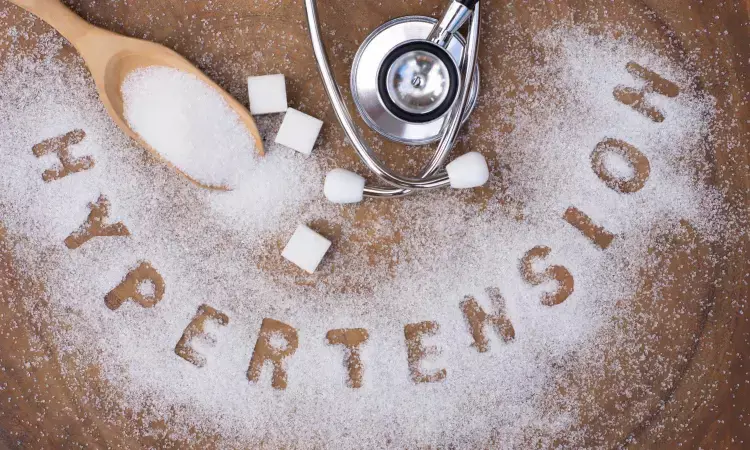- Home
- Medical news & Guidelines
- Anesthesiology
- Cardiology and CTVS
- Critical Care
- Dentistry
- Dermatology
- Diabetes and Endocrinology
- ENT
- Gastroenterology
- Medicine
- Nephrology
- Neurology
- Obstretics-Gynaecology
- Oncology
- Ophthalmology
- Orthopaedics
- Pediatrics-Neonatology
- Psychiatry
- Pulmonology
- Radiology
- Surgery
- Urology
- Laboratory Medicine
- Diet
- Nursing
- Paramedical
- Physiotherapy
- Health news
- Fact Check
- Bone Health Fact Check
- Brain Health Fact Check
- Cancer Related Fact Check
- Child Care Fact Check
- Dental and oral health fact check
- Diabetes and metabolic health fact check
- Diet and Nutrition Fact Check
- Eye and ENT Care Fact Check
- Fitness fact check
- Gut health fact check
- Heart health fact check
- Kidney health fact check
- Medical education fact check
- Men's health fact check
- Respiratory fact check
- Skin and hair care fact check
- Vaccine and Immunization fact check
- Women's health fact check
- AYUSH
- State News
- Andaman and Nicobar Islands
- Andhra Pradesh
- Arunachal Pradesh
- Assam
- Bihar
- Chandigarh
- Chattisgarh
- Dadra and Nagar Haveli
- Daman and Diu
- Delhi
- Goa
- Gujarat
- Haryana
- Himachal Pradesh
- Jammu & Kashmir
- Jharkhand
- Karnataka
- Kerala
- Ladakh
- Lakshadweep
- Madhya Pradesh
- Maharashtra
- Manipur
- Meghalaya
- Mizoram
- Nagaland
- Odisha
- Puducherry
- Punjab
- Rajasthan
- Sikkim
- Tamil Nadu
- Telangana
- Tripura
- Uttar Pradesh
- Uttrakhand
- West Bengal
- Medical Education
- Industry
Moderate dietary salt restriction reduces BP and depressive symptoms in patients with primary aldosteronism: The Salt CONNtrol trial

Germany: A recent study published in the Journal of Internal Medicine found that moderate dietary salt intake restriction in patients with primary aldosteronism (PA) substantially reduces blood pressure (BP) and improves mental well-being.
The findings from the clinical trial underline that a sufficient RAAS (renin-angiotensin-aldosterone-system) blockade seems to augment the effects of salt restriction on cardiovascular risk and BP.
Primary aldosteronism- a condition in which the adrenal glands make too much of the hormone aldosterone- is a common cause of secondary hypertension. The combination of aldosterone excess and high dietary salt intake leaves affected patients with a higher risk of cardiovascular disease than patients with hypertension from other causes. Mineralocorticoid antagonists are the main treatment of primary aldosteronism, but these medications do not completely normalize patients’ elevated cardiovascular risk.
Because elevated aldosterone and high dietary salt intake harm patients’ health, investigators wondered whether salt restriction might benefit patients. In the non-randomized single-arm Salt CONNtrol trial that included 41 patients, moderate salt restriction reduced blood pressure and depressive symptoms without detectable adverse effects.
The study revealed the following findings:
- Dietary salt intake significantly decreased from 9.1 to 5.2 g/d at the end of the study.
- In parallel, systolic (130 vs. 121 mm Hg) and diastolic blood pressure (BP) (84 vs. 81 mm Hg) improved significantly.
- Patients’ aptitude of estimating dietary salt content was refined significantly (underestimation by 2.4 vs. 1.4 g/d).
- Salt restriction entailed a significant weight loss of 1.4 kg, improvement in pulse pressure (46 vs. 40 mm Hg) and normalization of depressive symptoms (PHQD scale).
- Salt restriction, cortisol after dexamethasone suppression test and dosage of RAAS blockers were independently associated with BP reduction.
“The study shows that a moderate dietary salt restriction is feasible when combined with a dedicated smartphone app for continuous motivation and has a strong antihypertensive effect in patients with primary aldosteronism,” said corresponding author Christian Adolf, MD, of the Ludwig Maximilian University of Munich, in Germany. “Our findings will help to improve care for patients with primary aldosteronism and, likely, also for subgroups of patients with essential hypertension.”
Reference:
Holger Schneider, Anna-Lina Sarkis, Lisa Sturm, Vera Britz, Andreas Lechner, Anne L. Potzel, Lisa Marie Müller, Daniel A. Heinrich, Heike Künzel, Hanna F. Nowotny, Thomas Marchant Seiter, Sonja Kunz, Martin Bidlingmaier, Martin Reincke, Christian Adolf, First published: 22 March 2023 https://doi.org/10.1111/joim.13618.
Dr Kamal Kant Kohli-MBBS, DTCD- a chest specialist with more than 30 years of practice and a flair for writing clinical articles, Dr Kamal Kant Kohli joined Medical Dialogues as a Chief Editor of Medical News. Besides writing articles, as an editor, he proofreads and verifies all the medical content published on Medical Dialogues including those coming from journals, studies,medical conferences,guidelines etc. Email: drkohli@medicaldialogues.in. Contact no. 011-43720751


